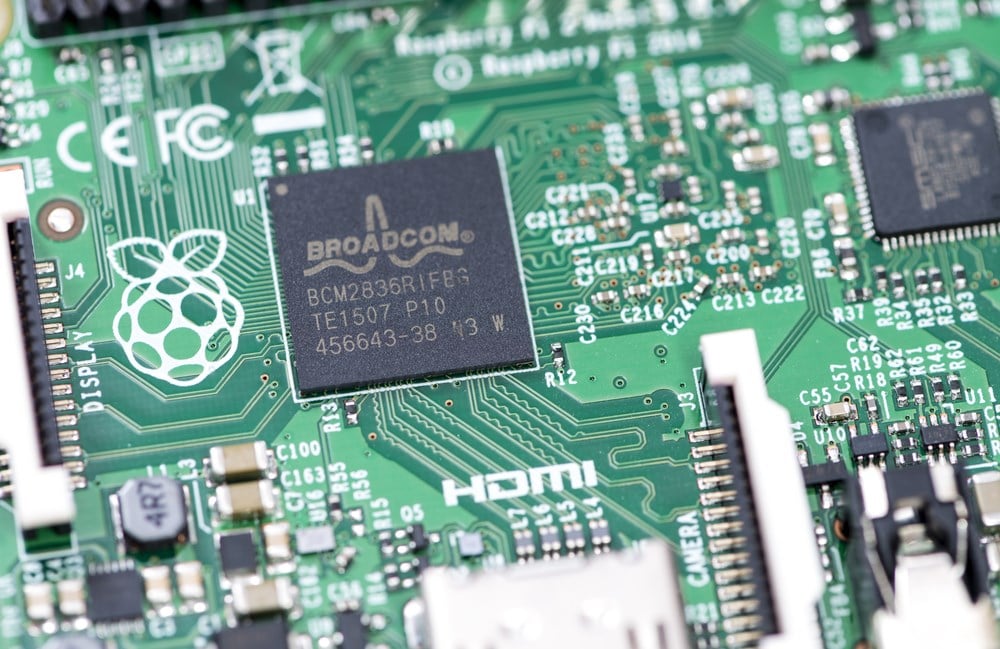
So far in the AI gold rush, Nvidia Corp. (NASDAQ: NVDA) has emerged as the leading chipmaker. However, analysts and investors are beginning to notice the potential for NASDAQ: AVGO">Broadcom Inc. (NASDAQ: AVGO) to grab a significant share of the business for generative AI applications.
Broadcom stock has been consolidating below a May 30 high of $921.78. The stock has been trending above its 10-day moving average in no specific shape.
Trading volume has been light in recent weeks, as you can see on the Broadcom chart. Light volume during a consolidation is exactly what you want to see, as it signals that there’s no mad dash to get out of the stock, but instead, the pullback represents a breather, or just some profit taking.
Chip stocks as a whole have been trading higher in the past week.
European Regulatory Approval For VMWare Deal
One factor driving Broadcom’s uptrend in the past couple of sessions is European regulators giving the nod to the company’s acquisition of VMWare Inc. (NYSE: VMW). VMWare shares are up 11.15% this week on the news. European regulators have been tough on merger-and-acquisition activity, but it’s the latest sign that conditions are easing on both sides of the Atlantic.
Defanged regulators are likely contributing something to Broadcom’s rise. However, a bigger factor is the potential for future business selling AI chips.
In April, Broadcom rolled out a new chip to connect supercomputers for AI applications, using existing network technology. Broadcom made its bones as a maker of Ethernet switches, which serve as the primary means of interconnecting computers within data centers.
With the fast rise of Alphabet Inc's (NASDAQ: GOOGL) Bard and the Microsoft Corp. (NASDAQ: MSFT)-owned OpenAI ChatGPT, data-center networks are working harder. It requires an enormous amount of data to train these systems to give accurate and grammatical answers.
To address that issue, data centers use thousands of chips working together. Those chips must be able to communicate quickly and easily.
Going To Battle With Jericho Chips
To get a bigger piece of that market, Broadcom introduced the Jericho3-AI, capable of linking as many as 32,000 chips. It competes with InfiniBand, a networking technology made by Nvidia, through its 2019 acquisition of Mellanox.
Nvidia has the most market share for those data center connectivity chips, known as graphics processing units, or GPUs.
Meanwhile, Broadcom has been the leader in chips for switchers and routers, which are integral to the cloud networks that are also essential to the AI boom.
Wall Street expects Broadcom’s earnings to be flat this year, at $37.77 per share. Next year, that’s seen rising by 9% to $41.08 a share.
History Of Topping Views
As a look at Broadcom earnings data shows, the company has a long history of exceeding earnings views. In the past two quarters, it also topped sales expectations.
The company’s three-year earnings growth rate is 28%, its sales growth rate during that time is 17%.
In a July 11 note maintaining its “buy” rating, Bank of America cited several factors for its support of Broadcom. Those factors include a sales outlook for the second half of the year that’s expected to be higher than the broader chip industry; good inventory management; and an AI pipeline that’s on track for growth that could offset headwinds in non-AI products.
Analysts Seeing A Higher Price
Broadcom analyst ratings show a consensus view of “moderate buy.” After the company’s most recent quarterly report in early June, nine analysts boosted their price targets on Broadcom.
In commentary on July 6, Morningstar analyst William Kerwin said he was “upgrading Broadcom’s economic moat rating to wide from narrow, based on improved confidence in the durability of Broadcom’s technological lead in smartphone and networking chips and our favorable opinion of the firm as an aggregator that can be more valuable than the sum of its parts.”
He also noted a longer runway for profitability, in addition to stronger growth in the near term. He raised his price target to $790 from $640.




